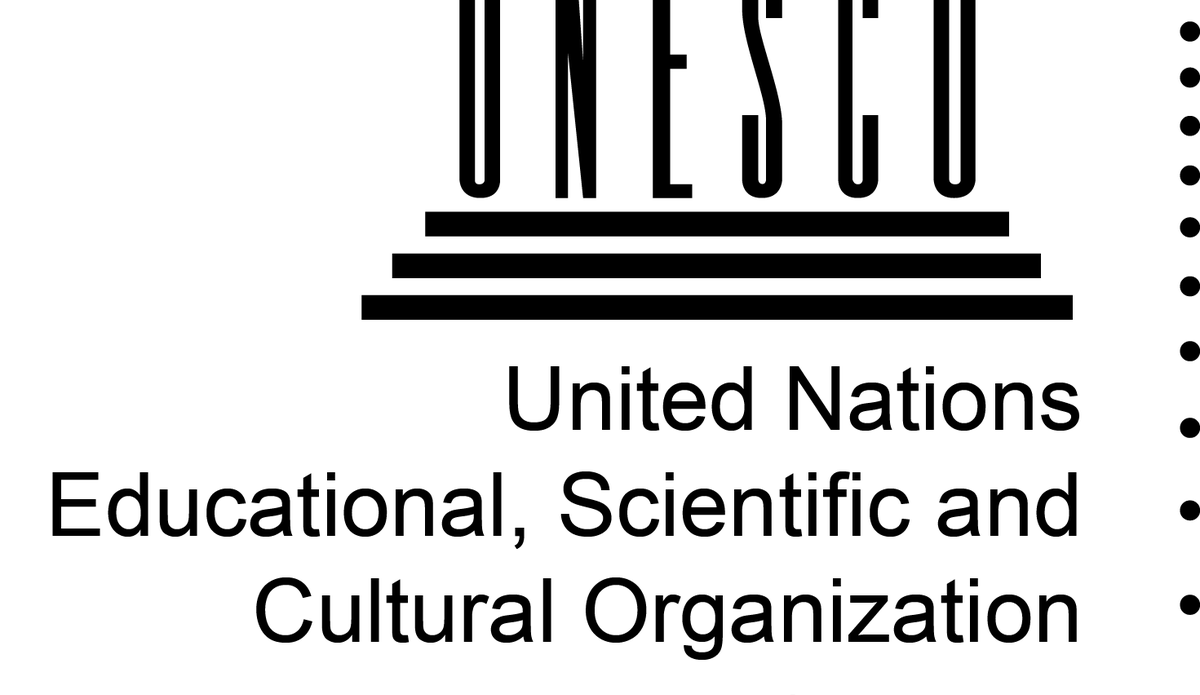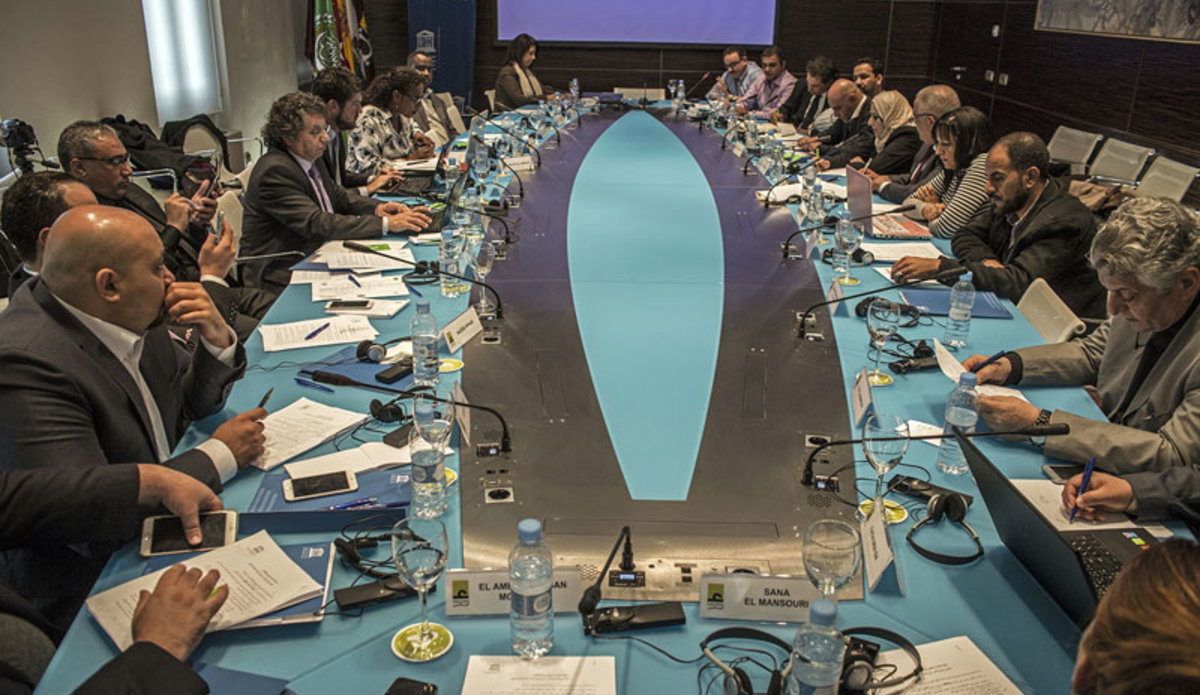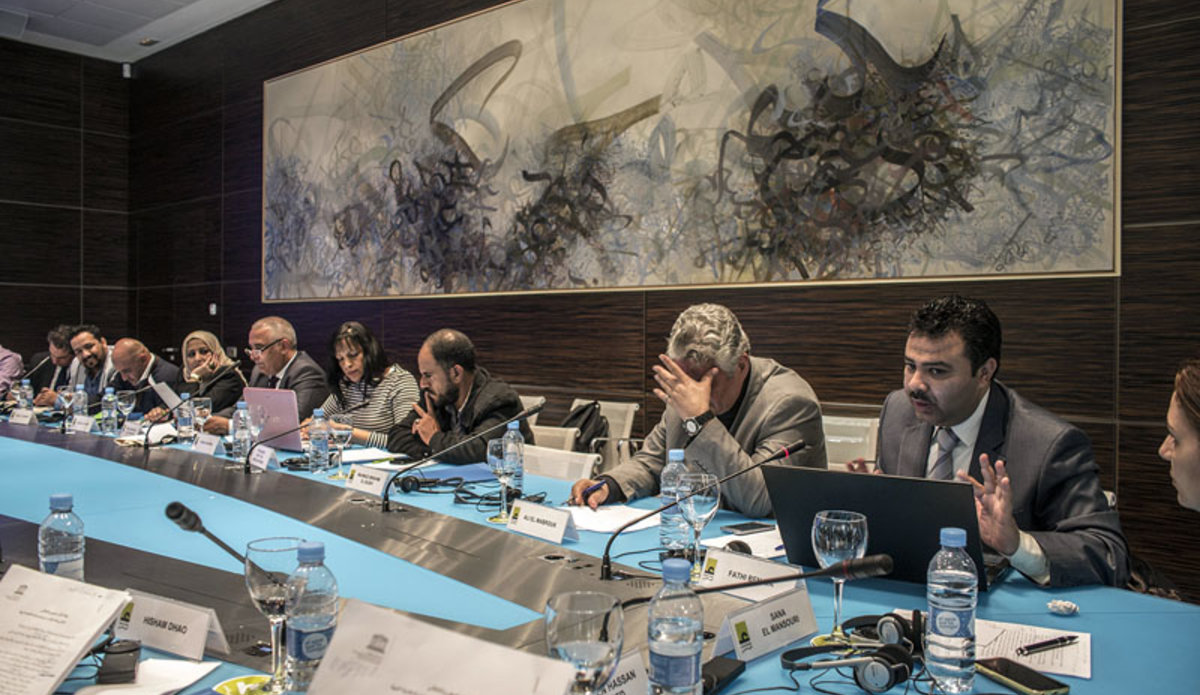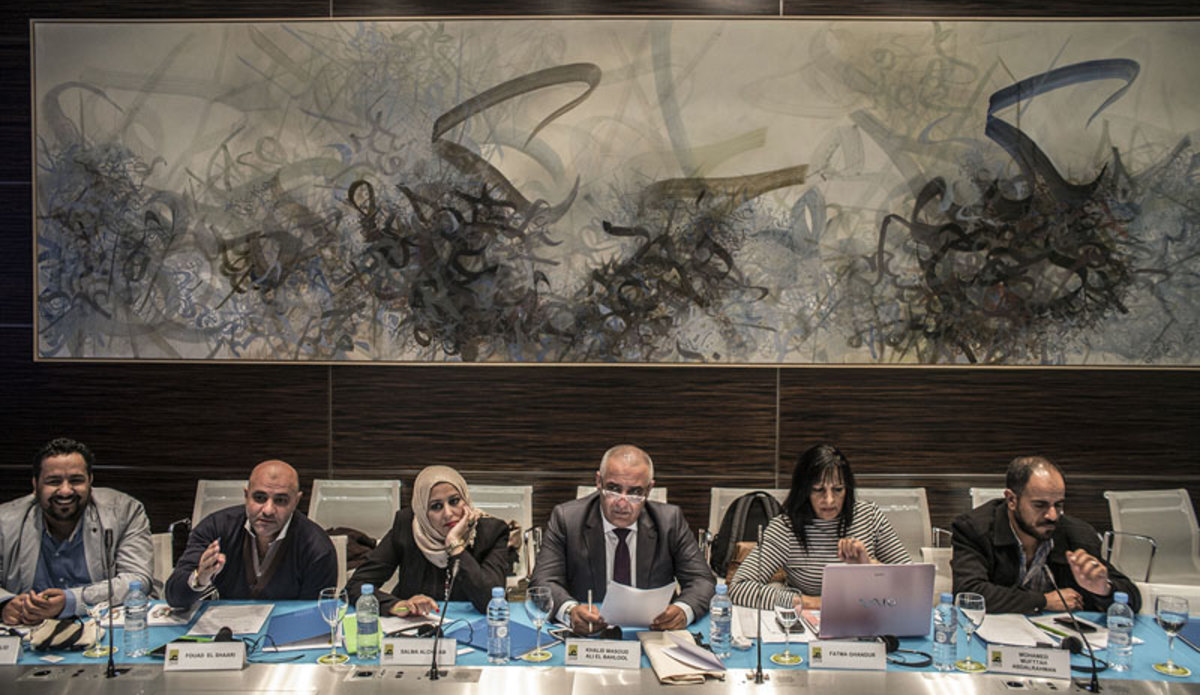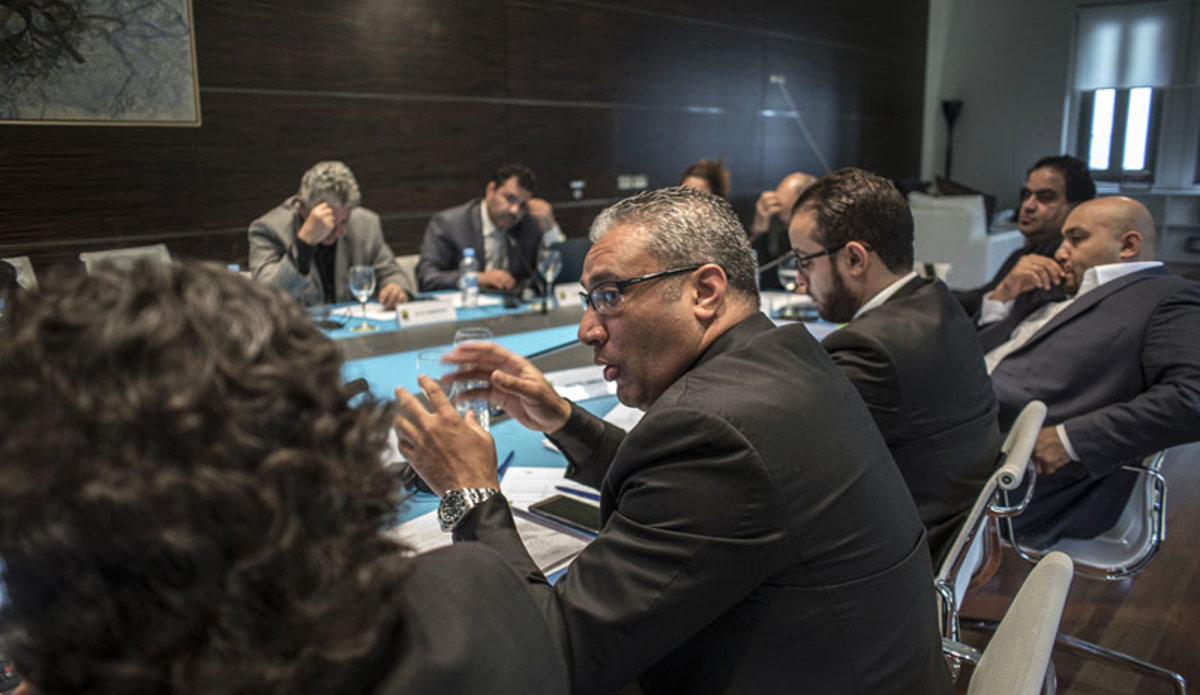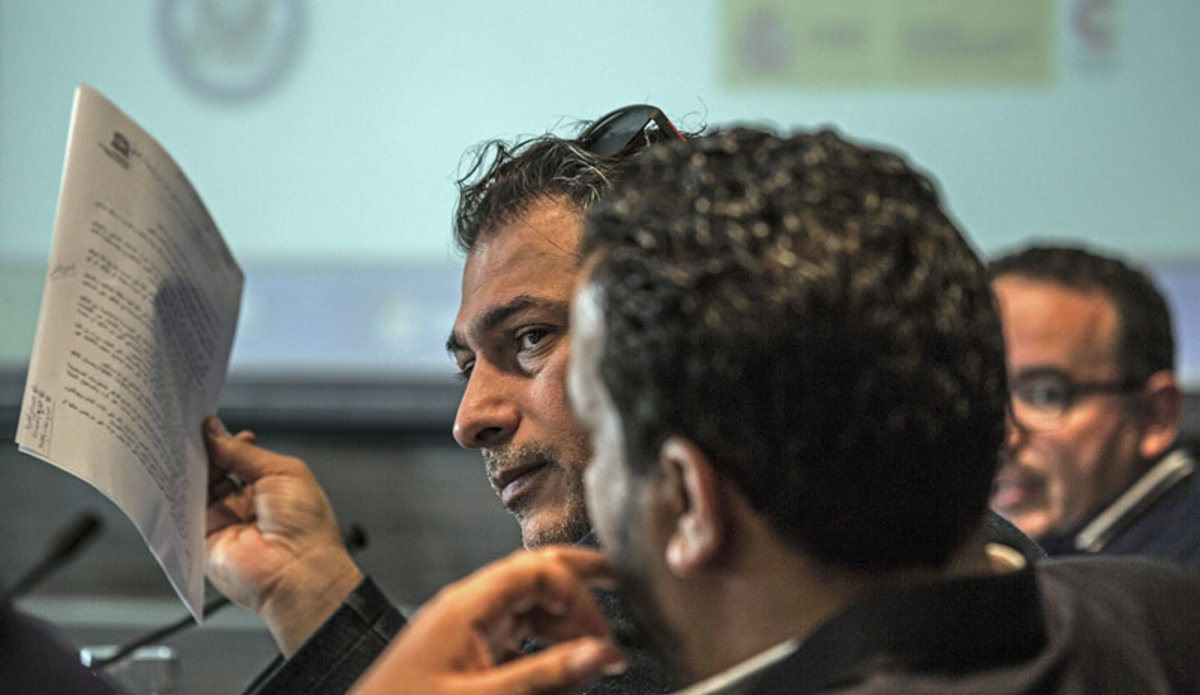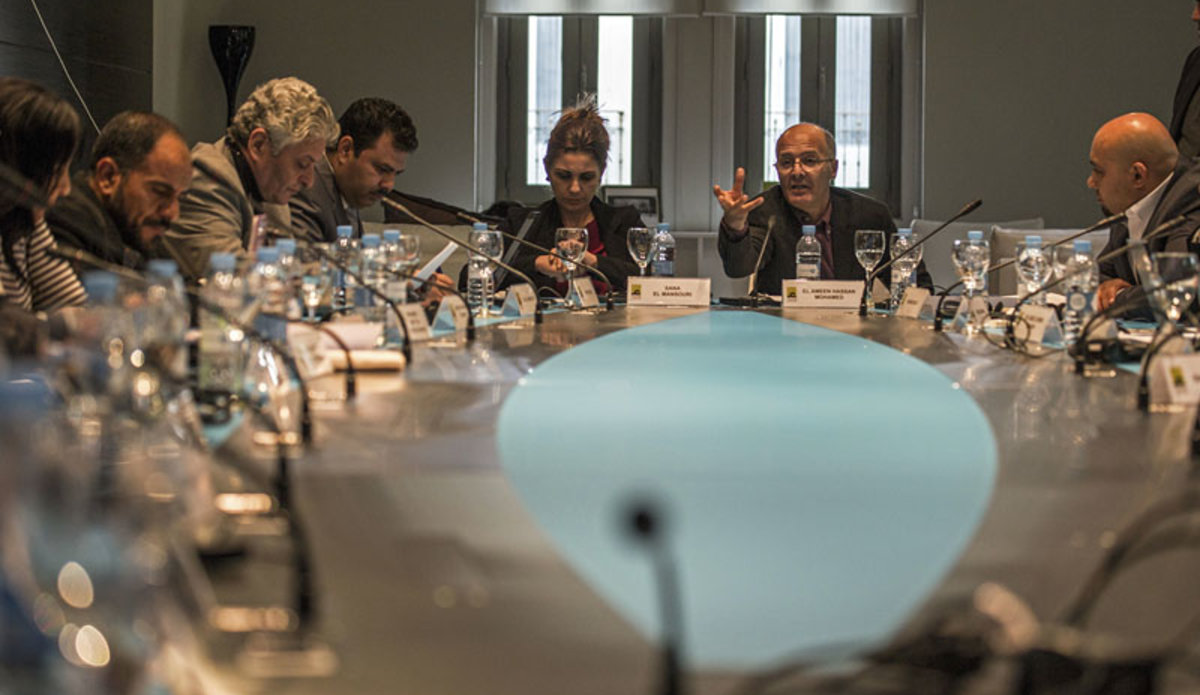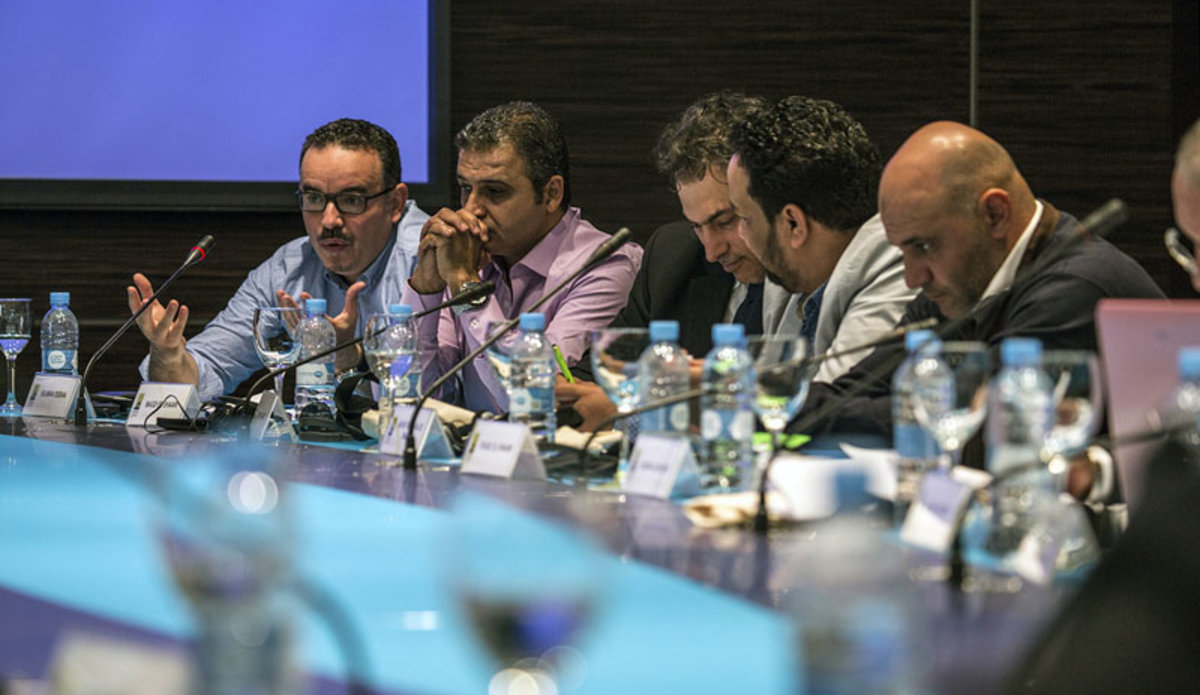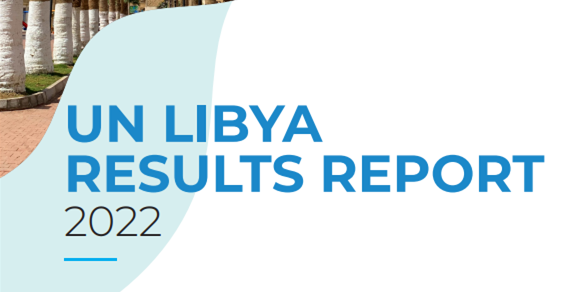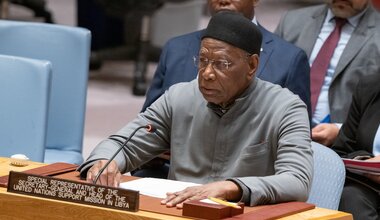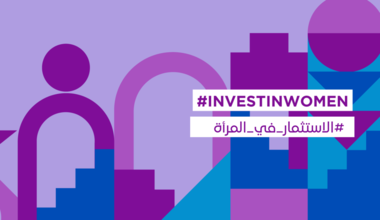Professional and Ethical Standards Strengthened in Libyan Media
Madrid, Spain – 29 October 2015 – In discussions facilitated by UNESCO and the Ministry of Foreign Affairs and Cooperation of Spain, 20 senior owners and managers from Libyan media outlets, including television, print, radio and online media based both inside the country and abroad have jointly approved a statement which outlines their intention to improve professional and ethical standards and implement internal policies accordingly.
| ; | ; | ; |
| ; | ; | ; |
In the statement, the participants “commit to the outcomes of the Rabat Action Plan with respect to prohibiting incitement to hatred in all its forms and to discrimination, hostility and violence as well as the International Covenant on Civil and Political Rights with emphasis on articles 19 … and adhere to the principles of freedom of expression and privacy for all those who work in media institutions.”
The statement, coming after four days of intensive discussion and consultation, builds on the previous agreement reached in the first meeting of media owners and managers in Madrid in July. Recalling the principles agreed to in the first meeting, the participants outlined actions to be taken in establishing and making public clear editorial and right to reply policies, improving contractual arrangements for journalists and strengthening professional standards within their outlets. The document calls on all Libyan media colleagues to join the effort to “create peace and heal the rifts among the Libyan people”.
“This has been a practical meeting, with practical discussions and practical suggestions to improve your work,” stated Michael Croft, UNESCO Representative to Libya, “But it is nonetheless a very meaningful example of cooperation among Libyans, and within a critical sector as well. We commit to work with you and all others in the sector who are inspired by this approach and wish to move towards more professional standards and performance.”
“We congratulate the participants for signing a declaration that is clear, brave and a model for other Libyan media that want to work in a responsible way to contribute to the building of peace in the country,” affirmed Eva Martinez Sanchez, Director of Magreb Region in the Spanish Ministry of Foreign Affairs and Cooperation.
Nabil Shebani, the manager of Libya’s Channel, stated “The new participants from the media managers enriched the conversation with their contributions and added a lot of value”. He praised the spirit of the four days and stressed that the final statement of the roundtable, which all participants signed, is “an important step towards a media that makes peace”. He added that it is important that media professionals support and follow this document, to both empower the process and ensure its implementation”.
Salmah Al Shaab of the Tripoli Journalists Syndicate stated, "The statement signed today went further into detail than the previous declaration, referring to the need to accept the other and concrete steps to work towards peace." Al Shaab called for continued UNESCO support for the media, especially in linking Libyan media managers with similar regional and international experience to move the discourse in the sector towards international standards of freedom of expression"
This activity is undertaken by UNESCO Tripoli Project Office in partnership with Spain’s Ministry of Foreign Affairs and Cooperation, and made possible with the generous support of the Embassy of the United States of America and the Finnish Ministry of Foreign Affairs. It is part of the Organization’s efforts to reinforce the capacity of Libyan media to contribute to reconciliation and peace in the country as well as to promote freedom of expression and independent media.
Madrid statement 26-29 October 2015: Libyan Media's role and obligations in times of crisis
For more information please contact
Raja’a El Abasi, Program officer
r.el-abasi@unesco.org
Cell: +216 71 655 000
 United Nations Peacekeeping
United Nations Peacekeeping UN
UN
